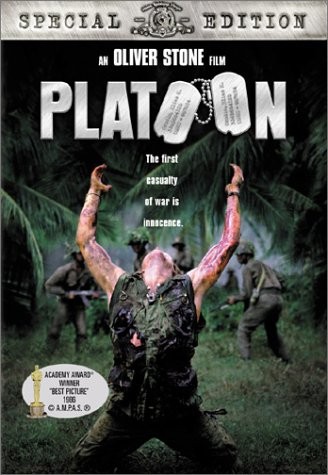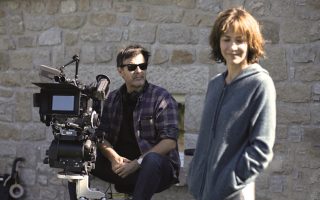Top 12 French Film Composers: Part 2

Continuing our look at marvelous movie scores by French composers, begun in our February issue.
PIONEER
Maurice Jaubert was an essential part of 1930s French cinema, and his career would surely have continued to thrive had he not been killed in battle in 1940. His first score was composed for cinema master Jean Renoir (Nana) in 1926. He went on to work with other major French filmmakers: René Clair (Quatorze Juillet/July 14, 1933), Julien Duvivier (La Fin du Jour/The End of the Day, 1939), Marcel Carné (Quai des Brumes/Port of Shadows, 1938, Le Jour se Lève/Daybreak, 1939). His score for Jean Vigo’s L’Atalante (1934) is especially memorable. In the 1970s François Truffaut reused Jaubert’s compositions in four films, including L’Histoire d’Adèle H. (The Story of Adele H, 1975) and L’Homme Qui Aimait les Femmes (The Man Who Loved Women, 1977).
PROLIFIC
Georges Delerue started with the New Wave but soon became popular with filmmakers of all sorts. He scored more than 300 films, many of them masterpieces: Hiroshima Mon Amour (Alain Resnais, 1959); Le Mépris (Contempt, Jean-Luc Godard, 1963); L’Homme de Rio (That Man from Rio, Philippe de Broca, 1964); and most of François Truffaut’s films, including Jules et Jim (1962) and Le Dernier Métro (The Last Metro, 1980), for which he won one of his three Césars. Like fellow composer Maurice Jarre, he capped off his career in Hollywood, with such major films as A Little Romance (George Roy Hill, 1979), which earned him his only Oscar, and Platoon (Oliver Stone, 1986).
TOUCHE-À-TOUT
Serge Gainsbourg had a sideline only his true fans know. From 1959 to his death in 1991, the singer/songwriter wrote the scores for more than 50 features—from mainstream comedies (Le Pacha, Georges Lautner, 1968) to soft porn (Goodbye Emmanuelle, Philippe Leterrier, 1977), from classic dramas (Drôle d’Endroit pour une Rencontre/Strange Place for an Encounter, François Dupeyron, 1988) to experimental cinema (Mister Freedom, William Klein, 1969)—as well as films he directed himself (Je t’Aime Moi Non Plus/I Love You, I Don’t, 1976). But everyone knows Sea, Sex and Sun, the hit song he wrote for one of France’s most popular comedies, Les Bronzés (French Fried Vacation, Patrice Leconte, 1978).
INSPIRING DOCUMENTARIES
Bruno Coulais’s passion for documentaries dates to his first score, for François Reichenbach’s short México Mágico in 1979. He collaborated with Jacques Perrin and Jacques Cluzaud on all of their award-winning documentaries, most recently Océans (2010), as well as with other major French documentary filmmakers. But his original, atmospheric musical style also fit Henry Selick’s spine-tingling animated film Coraline (2009). Coulais has won three Césars, including one for Les Choristes (The Chorus, Christophe Barratier, 2004), his most conventional composition.
NEW MUSICALS
Singer/songwriter Alex Beaupain began working with director Christophe Honoré in 2002, and since then has collaborated on all of Honoré’s films. Beaupain’s pop and melancholic style and Honoré’s innovative yet New Wave?inspired cinema are a natural match. Honoré’s 2007 musical tragicomedy, Les Chansons d’Amour (Love Songs), was based on Beaupain’s first solo album, and although the film was only a minor success, it has gained cult status among French twentysomethings thanks to Beaupain’s catchy songs. In 2011 Honoré and Beaupain teamed up for another musical, Les Biens-Aimés, starring Catherine Deneuve and her daughter Chiara Mastroianni.
NEWCOMER
Ludovic Bource began his career in advertising, writing scores for commercials made by his friend Michel Hazanavicius. When Hazanavicius switched to cinema, Bource accompanied him, working on all his movies, including the spy spoof series OSS 117 and, of course, The Artist. The black-and-white silent film became an international phenomenon, earning Bource a Golden Globe and an Oscar for Best Original Score. The score is an homage to film music, quoting from classics including Bernard Herrmann’s score for Vertigo (Alfred Hitchcock, 1958). One curious reaction: Vertigo star Kim Novak bought a full page in the trade magazine Variety to tell the world that she felt “raped” by the echoes of Vertigo in The Artist.
OTHER NOTABLE SCORES
Michel Magne Les Tontons Flingueurs, Georges Lautner, 1963
Vladimir Cosma Le Grand Blond avec une Chaussure Noire (The Tall Blond Man with One Black Shoe), Yves Robert, 1972
François de Roubaix Le Vieux Fusil (The Old Gun), Robert Enrico, 1975
Philippe Sarde Barocco, André Téchiné, 1976
Pierre Jansen Violette Nozière (Violette), Claude Chabrol, 1978
Michel Portal Le Retour de Martin Guerre (The Return of Martin Guerre), Daniel Vigne, 1982
Jean-Claude Petit Cyrano de Bergerac, Jean-Paul Rappeneau, 1990
Benoît Charest Les Triplettes de Belleville (The Triplets of Belleville), Sylvain Chomet, 2003
Yann Tiersen Le Fabuleux Destin d’Amélie Poulain (Amélie), Jean-Pierre Jeunet, 2001
Trailers of most of these films can be found on www.youtube.com
Find French films in our France Today Bookstore. Other possible sources: www.amazon.ca, www.amazon.fr, www.facetsdvd.com, www.fnac.com.
When you order DVDs from France, you’ll need a multiformat DVD player that can read Zone2 DVDs.
Originally published in the March 2012 issue of France Today
Share to: Facebook Twitter LinkedIn Email
Leave a reply
Your email address will not be published. Required fields are marked *



